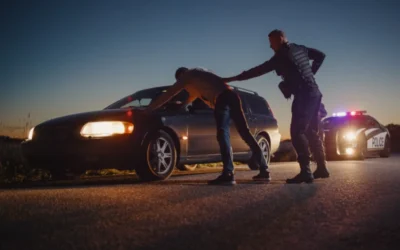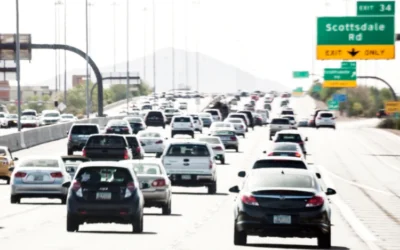Hours of Service Violations in Arizona
49 CFR 395.3
The Federal Motor Carrier Safety Administration (FMCSA) regulates commercial drivers. One of the ways FMCSA regulates commercial drivers is to impose hours of service rules. This means FMCSA places restrictions on how long a commercial driver may drive in a particular period of time. For commercial drivers carrying property (and not people) this rule is known as the 11 and 14 hour rule, the 11/14 rule, the 11 hour rule, or the 14 hour rule.
In summary, a driver may drive a maximum of 11 hours in a 14 consecutive hour period, after at least 10 hours of being off duty. A driver may not drive after the 14 consecutive hour period.
The 11 and 14 hour rule is set forth in 49 CFR 395.3 which specifies minimum driving time for property-carrying vehicles.
CALL NOW OR UPLOAD YOUR TICKET
Other Hours of Service Rules
49 CFR 395.3 container other rules regarding hours of service:
A commercial driver carrying property may not drive if “more than 8 hours have passed since the end of the driver’s last off-duty or sleeper-berth period of at least 30 minutes.” There are some exceptions to this rule if the driver is engaging in short-haul operations.
And
A commercial driver carrying property may not drive if he has “been on duty for 60 hours in any period of 7 consecutive days if the employing motor carrier operates motor vehicles every day of the week.”
And
A commercial driver carrying property may not drive is he has “been on duty 70 hours in any period of 8 consecutive days if the employing motor carrier operates commercial motor vehicles every day of the week.”
An hours of service violation will usually be discovered when a commercial driver is pulled over by law enforcement. The law enforcement officer will ask to see the driver’s logbook and will look carefully for violations of this rule.
Penalties for an hours of service violation in Arizona
In Arizona, a conviction for an hours of service violation is a class 2 misdemeanor according to A.R.S. 28-5240, which states:
A. In addition to civil penalties imposed under this chapter, a motor carrier, shipper or manufacturer who operates or causes to be operated a commercial motor vehicle in violation of this chapter or who knowingly violates or knowingly fails to comply with any provision of this chapter or with any rule adopted pursuant to this chapter is guilty of:
1. A class 2 misdemeanor for a first offense.
2. A class 1 misdemeanor for a second offense.
3. A class 6 felony for any subsequent offense.
For a first offense, which would be charged as a class 2 misdemeanor, there is the potential for up to a $750 fine plus surcharges of $630, up to 4 months in jail, and probation. In practice, jail time and probation are unlikely.
We have seen instances where this is charged as a civil violation. In that case, the violation number is preceeded with an “FMC” rather than a “CFR”.
Most hours of service violations carry 7 CSA points as well.
Defending against an hours of service violation in Arizona
First, we are looking for a legal argument. In other words, was the driver actually in compliance with the hours of service rules? During a criminal case, we have the opportunity to review the evidence against the driver and interview the police officer.
If there is no legal argument, sometimes we can still negotiate an improved outcome. This could mean negotiating the charge from a criminal charge to a civil charge, or negotiating the charge to something that is not reportable. Sometimes we can resolve a case through diversion or deferred prosecution. Diversion means the prosecution pauses prosecuting the case and the driver jumps through some hoops like taking a class and not getting any new tickets for a period of time. Then if the driver successfully does those things, the prosecution dismisses the case.
Schedule a Free Consultation
Email us below and we’ll reach out.
Latest Blog Posts
Sovereign Citizens and Traffic Stops
Sovereign Citizens and Traffic Stops in ArizonaThis post is not going to include a discussion of what it means to be a sovereign citizen. I’ll leave that to other pages like the Wikipedia page on sovereign citizens. In this post I wanted to cover some of the practical...
Following Too Closely – How Long Does It Take To Stop?
Following Too Closely - How Long Does It Take To Stop?A common civil traffic violation that we see is following too closely. Without getting into the merits of these tickets, or how police officers often follow civilians at dangerously close distances, I wanted to...



